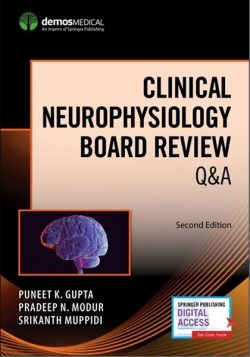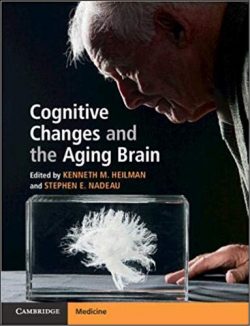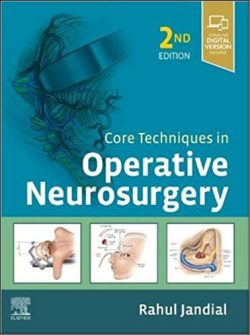This book presents original case studies performed on dedicated PET-CT devices and showcases common and uncommon cancers and the latest PET-CT applications for neurological, pediatric, and cardiovascular disorders. This authoritative book, now in its Second Edition, presents correlative three-dimensional cross-sectional PET and CT images that highlight pathological findings. Each case example is accompanied by a concise explanation of the patient history and interpretation of the PET-CT study. “Pearls and pitfalls” and insightful discussions are included to assist in the understanding of pathology, diagnosis, and imaging approaches. The book also discusses pathophysiology and technical artifacts and summarizes the advantages and limitations of using this technology in the clinical setting. PET-CT: A Case-Based Approach, Second Edition, is a valuable resource for nuclear medicine practitioners, radiologists, and residents, as well as referring clinicians interested in learning more about how this imaging modality can be applied in their patient populations.
Peter S. Conti is a Professor of Radiology and the Director of the PET Imaging Science Center at the University of Southern California, and is a Fellow of both the American College of Radiology and American College of Nuclear Physicians. He is a pioneer in the development of the clinical applications of PET and PET-CT.
This fully revised new edition of the successful guide presents updated cases and extensive color images. Detailed and original PET/CT exemplars showcase a range of cancers as well as the latest applications for neurological and cardiovascular disorders.
1. Normal Patterns and Variants
Aarti Kaushik and Peter S. Conti
2. Lung Neoplasms
Nova Isaac and Peter S. Conti
3. Breast Neoplasms
Nova Isaac and Peter S. Conti
4. Esophageal and Gastric Neoplasms
Shahram Bonyadlou and Abtin Doroudinia
5. Hepatobiliary, Pancreas, Adrenal, Melanoma, and GIST
Heidi Wassef and Linh T. Ho
6. Colon Neoplasms
Aarti Kaushik and Robert W. Henderson
7. Gynecologic Neoplasms: Cervical, Ovarian, Vulvar, Uterine, and Endometrial Cancer
Bhushan Desai and Hossein
Jadvar
8. Urologic Neoplasms: Prostate, Bladder, and Renal Cell Carcinoma
Bhushan Desai and Hossein Jadvar
9. Lymphoma
<
Aarti Kaushik and Robert W. Henderson
10. Musculoskeletal Neoplasms
Aarti Kaushik and Linh T. Ho
11. F-18 Fluoride Bone Scintigraphy
Bhushan Desai and Peter S. Conti
12. Neuroradiology: Neoplasms and Epilepsy
Saman Hazany, John Go, Robert W. Henderson, Paul Kim, and Meng Law
13. Dementia
Aarti Kaushik an
d Peter S.
Conti
14. Pediatric Imaging
Shereif Gamie, Ella Yevdayev, Aarti Kaushik, and Hollie Jackson
15. Myocardial Viability
Shahram Bonyadlou and Sindu Sheth
16. Granulomatous Diseases
Nova Isaac and Robert W. Henderson
17. Newer Tracers
Aarti Kaushik and Peter S. Conti
“Professor Conti, who is a pioneer in the development of the clinical application of PET and PET/CT, published the first edition of PET-CT: A Case-Based Approach in 2005. This second edition again presents correlative 3-dimensional cross-sectional PET using 18F-FDG and CT images … . This book is a valuable resource for physicians and trainees in nuclear medicine and radiology, as well as being a way for referring physicians to learn more about how PET/CT can be applied in clinical practice.” (E. Edmund Kim, Journal of Nuclear Medicine JNM, Vol. 58 (11), November, 2017)
“This book presents case‐based PET‐CT imaging studies in both oncologic and other diseases. It presents individual cases with clinical history, imaging findings, a brief discussion, and pearls and pitfalls in order to familiarize readers with PET‐CT findings in different disease processes. … The book is most appropriate for the trainee level, particularly for those in a nuclear medicine residency program.” (Tara Catanzano, Doody’s Book Reviews, May, 2016)
Peter S. Conti, MD, PhD, FACNP, FACR
Professor of Radiology, Biomedical Engineering and Pharmaceutical Sciences
Director, Molecular Imaging Center and PET Clinic
Keck School of Medicine
University of Southern California
Los Angeles, CA, USA
Aarti Kaushik, MD
Kaiser Permanente
Southern California Permanente Medical Group
Riverside, CA, USA
Past Clinical Research Fellow
Molecular Imaging Center and PET Clinic
University of Southern California
Los Angeles, CA, USA
This book presents original case studies performed on dedicated PET-CT devices and showcases common and uncommon cancers and the latest PET-CT applications for neurological, pediatric, and cardiovascular disorders. This authoritative book, now in its Second Edition, presents correlative three-dimensional cross-sectional PET and CT images that highlight pathological findings. Each case example is accompanied by a concise explanation of the patient history and interpretation of the PET-CT study. “Pearls and pitfalls” and insightful discussions are included to assist in the understanding of pathology, diagnosis, and imaging approaches. The book also discusses pathophysiology and technical artifacts and summarizes the advantages and limitations of using this technology in the clinical setting. PET-CT: A Case-Based Approach, Second Edition, is a valuable resource for nuclear medicine practitioners, radiologists, and residents, as well as referring clinicians interested in learning more about how this imaging modality can be applied in their patient populations.
Peter S. Conti is a Professor of Radiology and the Director of the PET Imaging Science Center at the University of Southern California, and is a Fellow of both the American College of Radiology and American College of Nuclear Physicians. He is a pioneer in the development of the clinical applications of PET and PET-CT.
Presents original case studies that showcase common and uncommon cancers and the latest PET-CT applications for neurological, pediatric, and cardiovascular disorders
Features correlative three-dimensional cross-sectional PET and CT images that highlight pathological findings
Each case example features the patient history, interpretation of the PET-CT study, “pearls and pitfalls” and discussions about the pathology, diagnosis, and imaging approaches





